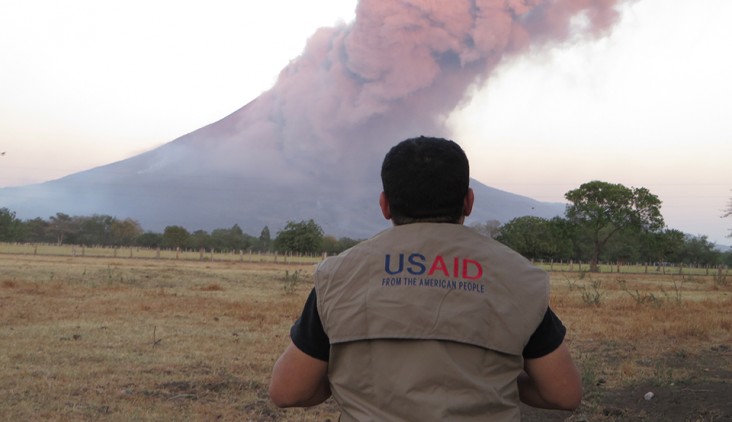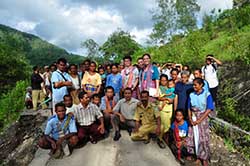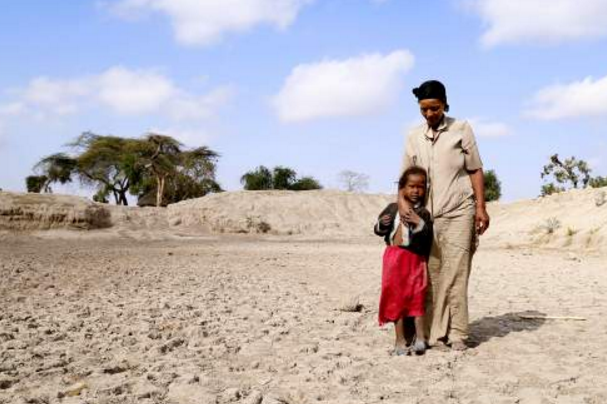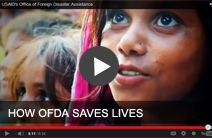- What We Do
- Agriculture and Food Security
- Democracy, Human Rights and Governance
- Economic Growth and Trade
- Education
- Ending Extreme Poverty
- Environment and Global Climate Change
- Gender Equality and Women's Empowerment
- Global Health
- Water and Sanitation
- Working in Crises and Conflict
- Disaster Assistance
- Political Transition Initiatives
- Conflict Mitigation and Prevention
- Countering Violent Extremism
- Disaster Risk Reduction
- Peacebuilding and Reconciliation
- Providing Safe & Secure Environments for Development
- Recovering From Crisis
- Resilience
- Tech Challenge for Atrocity Prevention
- World Humanitarian Day
- U.S. Global Development Lab

August 19 marks World Humanitarian Day, a time to recognize aid workers who risk their lives helping millions of people affected by global crises. Since the death of 22 UN and relief agency staff in a 2003 Baghdad bombing, we come together on August 19 to honor the brave women and men who have died serving others, and celebrate the selfless spirit of those who risk everything to help people in need.

This World Humanitarian Day, we’d like to introduce you to some of USAID’s own dedicated humanitarians working at the Office of U.S. Foreign Disaster Assistance (OFDA). Read More
Saving lives is getting harder to do as crises and conflicts grow in complexity, strain scarce resources, and put aid workers in grave danger. The numbers tell a grim story: An unprecedented 141.1 million people are in need across 37 countries, and more than 65 million people have been forcibly displaced by conflict and insecurity—the highest figure ever recorded. 249 aid workers were killed, injured, or kidnapped in 2016, making it a dangerous year for humanitarian staff, especially those working in the world’s worst conflict zones.

Photo Gallery: Saving Lives, Changing Lives
Unfortunately, conflict continues to be an all-too-common denominator in humanitarian crises. Currently, more than 20 million people are on the brink of famine as a result of man-made crises in South Sudan, Nigeria, and Yemen -- all of which are driven by violent conflict -- and Somalia, where ongoing conflict is compounding the effects of severe and prolonged drought. In Syria and Iraq, armed militant groups such as ISIS are driving record displacement and forcing families to abandon the homes and lives they’ve worked so hard to build.
The United States has a long and distinguished history of helping people in need. USAID disaster teams and our humanitarian partners are responding to these crises and others around the world, providing lifesaving food assistance, safe drinking water, medical care, and critical relief supplies. But the violence that is driving these crises—including deliberate attacks on civilians and relief workers—is also making it harder to reach vulnerable communities with the assistance they need.
This World Humanitarian Day, we stand in solidarity with everyone affected by global crises, especially civilians caught in the crosshairs of conflict. As we remain committed to saving lives, we also recognize the tremendous service of all of our humanitarian heroes, including USAID’s brave aid workers and partners on the ground.








Comment
Make a general inquiry or suggest an improvement.